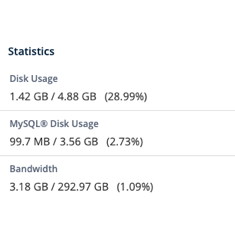Citizen Marketers: A Book Review
January 5th, 2007I just completed reading “Citizen Marketers: When People Are the Message” the latest book from Ben McConnell and Jackie Huba. I succumbed to reading this book ASAP due to repeated exhortations online. I probably would have gotten around to it eventually but I was also convinced to join a book club and the very first book being discussed is none other than “Citizen Marketers”. So why the online book review, my very first? I ask you, how can you read a book on citizen marketing without becoming a citizen marketer for that very book?
This book is very easy to read, it is short (about 178 real pages), and well researched but it is probably of more use to someone who doesn’t actively follow the blogosphere and developments in online social networks. It is aimed at business people particularly marketers or even the general public rather than a tech audience. I also read Ben and Jackie’s blog where much of the material previously appeared so there weren’t that many surprises for me.
I’ve twice shortened and reposted this review elsewhere. Hopefully improving on its usefulness by adding more brevity, most recently at Amazon.com, where it is also my first book review.
What is citizen marketing?
As a quote from page four explains that:
The nature of citizen marketers — they don’t often represent the average person, member, customer, or citizen. They are on the fringes, driven by passion, creativity, and a sense of duty.
Citizen marketers are a small percentage of your customer base that wields disproportional power for a variety of reasons. They are influentials their interests are often out in the long tail. There, that gets most of the buzz words into this post but doesn’t necessarily answer the question.
The 1% Rule
The first important idea in the book is the 1% Rule which is an extension of the Pareto Principal. By examining data from Wikipedia, Yahoo Groups, and other websites the authors determined that people who actually post the information found on those sites is consistently only about 1% of the total websites audience. Although anyone can add new information to the Wikipedia less than 1% of websurfers take the time and effort to do so. These are the one percenters and they can be a powerful force. This one percent rule held over many different forums, and through research it was determined that about 10% of websurfers will comment on information posted that means 90% of the audience online is passive just like the audience for traditional media.
Although for technical forums it isn’t as applicable I personally think voyeurism is a factor in participation in online social networks. I know many more people read my blog than take the time to comment so the 90% rule holds, and I’ve participated in many online forums and there are always a few people who seem to do the posting but the silent majority being 90% of the audience is a larger number than I would have estimated. I do think voyeurism plays a role in the success of websites such as MySpace, YouTube, Flickr and other Web 2.0 darlings.
This book owes a large debt to the work of Marshall McLuhen, the authors would readily admit this, as they quote him several times. Everyone is familiar with the “global village” or “the medium is the message” but I wonder how many people have actually read some of his books to get more than a superficial view of his thinking. McLuhen is becoming like Nietzsche in that regard, “God is Dead” is not the only thing Nietzsche ever wrote. And to dismiss a body of work or claim to understand it based on a few excerpts that entered common usage does an author a disservice.
So what do citizen marketers do?
The authors explain it best on page 47:
(The work of) citizen marketers is to reduce the risk of worsening product quality, deteriorating customer service, or falling behind competitors. They are contributing to an insurance policy against “disasters”.
This quotation is backed up by research conducted by economists into the thinking behind a family unit. People are willing to sacrifice some degree of control and an equal share of income which is inherent in being a member of the family unit and the reward for trusting the head of the family is a reserve of pooled resources that can be used against potential future disasters. Just like an insurance policy, a brand or product benefits from pooling resources in anticipation of possible future difficulties.
What resources do citizen marketers bring to bare?
I don’t have a carefully chosen quotation but basically it varies. Citizen marketers build the brand, though they can also damage a brand’s reputation. Citizen marketers can be a double edged sword. Citizen marketers have passion, are a free labour pool, they spread word of mouth, create buzz, help launch or relaunch products, assemble a community, start a campaign, or even all of the above.
Who are citizen marketers?
Well they can be just about anyone, but they are usually younger and technologically savvy. The book even introduced me to a new term; “millennials“. These are young men and women born after 1982. This millennial generation is a prime source of future citizen marketers who will make use of the latest Web 2.0 technologies.
4Ps and 3Cs of Citizen Marketing
The book also coins the 4Fs and 3Cs of citizen marketing. The book never makes it clear if these are in addition to or replace the 4Ps and 3Cs traditionally taught in marketing classes such as those from my MBA. The 4Ps from traditional marketing are: product, price, place, and promotion. This is what you can control when marketing a product or service and building a brand. The 3Cs traditionally taught are: company, competition, and customer. These are the most important people to consider when developing a marketing strategy. The book proposes the 4Fs of citizen marketing to be: filters, fanatics, facilitators, and firecrackers. The 4Fs are the four different categories of citizen marketers. The 3Cs from the book are the 3Cs of working with citizen marketers, basically methods of encouraging and cultivating citizen marketers, they are: contests, co-creation, and communities.
Besides quoting Marshall McLuhen the authors also quote Joseph Campbell and William Gibson. William Gibson is a Canadian futurist and author. Futurists like McLuhen and Gibson anticipated the Internet and online virtual worlds respectively. Joseph Campbell isn’t concerned with the future but with the past, he studied mythology and was a favourite of one of my creative writing teachers. It appears being well read still has its advantages, Joseph Campbell’s most famous work “The hero with a 1000 faces” is one of the books I’m always yammering about, it is concerned with universal reoccurring themes in human myths and stories. McConnell and Huba would like you to believe there is a heroic aspect in being a citizen marketer.
The Power of the One
Another important insight the book tries to convey is the Power of the One. This is the fact that a single talented, motivated, and determined individual, empowered by technology can cause great havoc for a company or brand. The authors note that “Google never forgets” and “You are your Google results.” Now who has said that before? Perhaps they’ll begin to teach this at the Sauder School of Business as I don’t think some of my classmates grasp the importance of maintaining a good reputation especially in the global village of the Internet age.
The Future of the Internet
Another source of insight into the future of the Internet can be gleaned from looking at other markets besides the North American or English speaking portion of the web. For sheer numbers everyone is fixated on the Chinese market but South Korean companies like CyWorld and Naver have introduced products and services which were later emulated elsewhere. All the major Korean portals are introducing new Blog 2.0 products and I’m not the only one noting features may trickle to the US. Chinese companies such as poster child Baidu tend to bring ideas developed elsewhere to China. There are many Chinese YouTubes and there will be Chinese MySpaces, maybe even one run by NewsCorp.
If you have any thoughts on citizen marketers, social marketing, or the future of the Internet you can leave them below.
This entry was originaly posted on , it was last edited on and is filed under: Reviews and tagged: Book Review, Marketing, Social Media.





Apparently if you write about someone’s book, well someone in the blogosphere, they may thank you. ;-) It is nice to be thanked.
I still think a lot of effort I put forth on behalf of others during my MBA program was underappreciated. Sometimes you can try too hard and be too honest.
That shouldn’t be a crime.
I’ll always want things to be better…